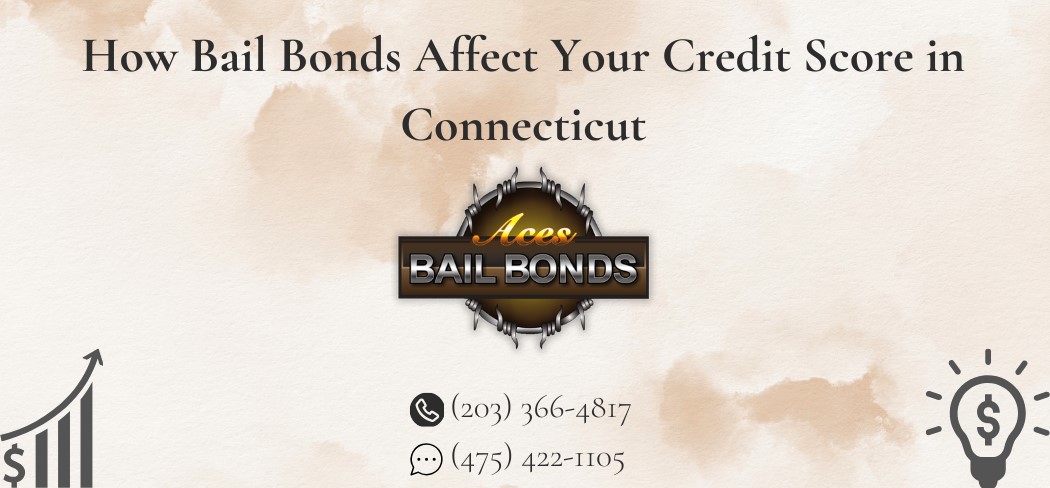How Bail Bonds Affect Your Credit Score in Connecticut
When facing an arrest, securing a bail bond can provide temporary freedom while awaiting trial. But beyond the legal process, many people in Connecticut overlook the financial impact of bail bonds—especially on their credit score.
From credit checks to missed payments, the bail bond process can directly or indirectly affect long-term financial health. This guide explains how Connecticut bail bonds influence credit scores and what steps you can take to protect your finances.
Understanding Bail Bonds
Bail is the money set by a court to guarantee that a defendant appears for all hearings. Many people cannot afford to pay the full amount in cash, which is why they turn to a bail bond company.
Here’s how it works:
-
A bail bond agent posts bail for the defendant.
-
The defendant or co-signer pays a non-refundable fee (usually 10% of the total bail).
-
Collateral, such as property or vehicles, may be required.
If the defendant fails to appear in court, the bail bond company may recover the full bail through collateral or legal action.
Direct Ways Bail Bonds Impact Credit Scores
1. Credit Checks
Bail bond companies often run credit checks on co-signers and sometimes defendants.
-
These are typically hard inquiries, which can lower a credit score by a few points.
-
Multiple inquiries in a short time may cause a larger dip.
2. Missed or Late Payments
If payments to the bail bond company are missed, the delinquency can be reported to credit bureaus.
-
Missed payments may stay on a credit report for up to seven years.
-
Payment history makes up 35% of a credit score, so this damage can be severe.
3. Debt Collections
Unpaid bail bond debts may be sent to a collection agency.
-
Collection accounts significantly reduce credit scores.
-
They can also make it harder to get loans, credit cards, or rental housing.
4. Judgments and Liens
If a bail bond company sues to recover unpaid debt, the resulting judgment or lien may appear on credit reports.
-
These legal records indicate high financial risk.
-
They can severely restrict access to credit and other financial opportunities.
Collateral and Credit Risks
Bail bond agreements often require collateral.
-
If the defendant fails to appear in court, the bail bond company may seize property, vehicles, or other assets.
-
Losing a home or car can cause financial instability and indirectly affect credit if mortgages or auto loans go unpaid.
Co-Signer Responsibilities
Co-signers carry major risks:
-
They are financially responsible if the defendant fails to appear.
-
They may face the same negative outcomes—asset loss, collection accounts, or judgments.
How to Protect Your Credit During the Bail Bond Process
1. Make Timely Payments
-
Pay all bail bond premiums and installment plans on time.
-
Set up automatic payments or reminders to avoid late fees.
2. Communicate with the Bail Bond Company
-
Be upfront about financial challenges.
-
Many Connecticut bail bond agents offer payment plans or alternatives.
3. Monitor Your Credit
-
Check your credit reports from Equifax, Experian, and TransUnion regularly.
-
Dispute errors and watch for signs of collections.
4. Seek Legal and Financial Advice
-
A defense attorney can explain legal obligations.
-
A financial advisor or credit counselor can help manage payments and protect your credit profile.
5. Explore Alternatives
Some Connecticut courts may allow alternatives to cash bail, such as:
-
Release on personal recognizance
-
Supervised release programs
-
Bail reform options (where available)
Long-Term Financial Recovery
The impact of bail bonds on credit scores doesn’t have to last forever. With consistent effort, individuals can rebuild their credit.
-
Rebuild Credit: Pay bills on time, reduce debt, and avoid new delinquencies.
-
Financial Counseling: Get personalized strategies from certified credit counselors.
-
Emergency Savings: Create a financial cushion to reduce reliance on bail bonds in the future.
-
Support Bail Reform: Advocacy for bail reform in Connecticut can help reduce the financial burden on families.
Conclusion
The connection between bail bonds and credit scores in Connecticut is significant but manageable. Missed payments, collections, or collateral loss can damage credit, but proactive steps—like making timely payments, monitoring reports, and seeking advice—help protect financial health.
At Aces Bail Bonds, we guide clients through the bail bond process with transparency and support, helping families stay informed and financially secure.
📞 Call (203) 344-7483 for trusted Connecticut bail bond services available 24/7.


